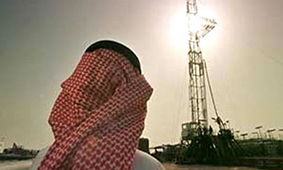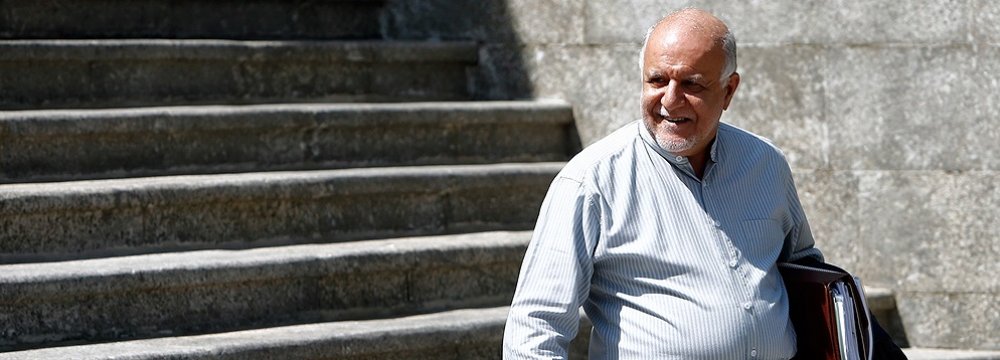
Zanganeh: Saudi Oil Production Capacity Not Unrestricted


"It seems that such remarks were made under US pressure on Saudi authorities," Zanganeh said, according to oil ministry news service Shana."Otherwise in reality, neither the Saudis nor any other country could replace Iran's exports," S&P Global reported.
Iran's crude and condensate exports fell by 11.5% to 1.7 million bpd in September from 1.92 million bpd in August, their lowest in at least two-and-a-half years, an S&P Global Platts analysis of trade flow data found Monday.
Platts Analytics expects Iranian crude and condensate exports to fall to 1.1 million bpd by October loadings, and to 800,000 bpd by Q4 2019, down from 2.91 million bpdin April.
In an interview with Bloomberg News published Friday, the Saudi crown prince said the kingdom and its allies in an OPEC/non-OPEC coalition have recently boosted output by some 1.5 million bpd, more than doubling the 700,000 bpd loss in Iranian supplies.
"We export as much as two barrels for any barrel that disappeared from Iran recently," Prince Mohammed said. "So we did our job and more."
Zanganeh reiterated his skepticism that Saudi Arabia has enough spare capacity to keep the market sufficiently supplied to prevent any price spike caused by US sanctions.
Saudi Arabia has never pumped higher than 10.7 million bpd across an entire month, the level that Saudi energy minister Khalid al-Falih last week said the kingdom would average in October. But it claims to be able to produce 12 million bpd at will.
"The market and rising prices are the best evidence of concern that the market is in short supply and is rightly nervous about the severe shortage of oil in the coming months," Zanganeh said.


Trump weighs using $2 billion in CHIPS Act funding for critical minerals

Codelco cuts 2025 copper forecast after El Teniente mine collapse

Electra converts debt, launches $30M raise to jumpstart stalled cobalt refinery

Barrick’s Reko Diq in line for $410M ADB backing

Abcourt readies Sleeping Giant mill to pour first gold since 2014

Nevada army depot to serve as base for first US strategic minerals stockpile

SQM boosts lithium supply plans as prices flick higher

Viridis unveils 200Mt initial reserve for Brazil rare earth project

Tailings could meet much of US critical mineral demand – study

Kyrgyzstan kicks off underground gold mining at Kumtor

Kyrgyzstan kicks off underground gold mining at Kumtor

KoBold Metals granted lithium exploration rights in Congo

Freeport Indonesia to wrap up Gresik plant repairs by early September

Energy Fuels soars on Vulcan Elements partnership

Northern Dynasty sticks to proposal in battle to lift Pebble mine veto

Giustra-backed mining firm teams up with informal miners in Colombia

Critical Metals signs agreement to supply rare earth to US government-funded facility

China extends rare earth controls to imported material

Galan Lithium proceeds with $13M financing for Argentina project

Kyrgyzstan kicks off underground gold mining at Kumtor

Freeport Indonesia to wrap up Gresik plant repairs by early September

Energy Fuels soars on Vulcan Elements partnership

Northern Dynasty sticks to proposal in battle to lift Pebble mine veto

Giustra-backed mining firm teams up with informal miners in Colombia

Critical Metals signs agreement to supply rare earth to US government-funded facility

China extends rare earth controls to imported material

Galan Lithium proceeds with $13M financing for Argentina project

Silver price touches $39 as market weighs rate cut outlook

















